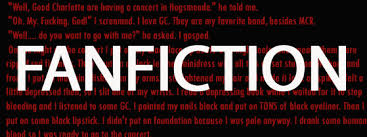So what exactly is the idea of mass amateurization? Clay Shirky, in "Here Comes Everybody" attempts to outline what mass amateurization is. Shirky talks a lot about the newspaper, and how it was a standard of news, run and contributed to by professionals. But Shirky is more so referring to the past. When he talks about now, it has more to do with the idea of capabilities. Shirky writes, "Capability now exists in the hands of everyone who owns a computer."(Shirky, p.59) Shirky here is referencing the idea that producing news is limited by capability. In the past, the capability was only there for professionals. Now, everyone with a computer has that same capability to be a producer. Shirky states, "The Web created a new ecosystem".(Shirky, p.60) In terms of a new ecosystem, now everyone relies more on the web than they used to on newspapers and television news. As Shirky had mentioned earlier, everyone has the capabilities. This idea of news now coming from any average person through the web is more or less the idea of Mass Amateurization.
Shirky goes on to explain the ideas of Mass Amateurization through peoples use of weblogs. Shirky writes, "The individual weblogs are not merely alternate sites of publishing; they are alternatives to publishing itself, in the sense of publishers as a minority and professional class."(Shirky, p.66) What Shirky is saying here is similar to the summary he gave earlier. That weblogs are now an option against traditional publishing. But who runs the weblogs? Not professionals, instead its the amateur. So in a sense that makes the actual professional publishers the minority. Therefore everything becomes amateurized. This is ultimately the idea behind Mass Amateurization.
 |
| Image source: Cracked.com |
In Henry Jenkins, "Why Heather Can Write" , the concept of the amateurization of the author is explored. Heather's story revolves around the idea of fan fiction. Essentially, Heather created a space where fan fiction could be written by anyone who wished to contribute. As a result, a large number of kids and young teens began writing their own fan fiction, and published it on the web. What Heather did was a small, but important example of the amateurization of the author. Jenkins writes, "For these young writers, the next step was the discovery of fan fiction on the internet, which provided alternative models for what it meant to be an author."(Jenkins, p.178) What Jenkins is saying is that no longer was the idea of authorship limited to the professionals. Through fan fiction, young writers could become authors themselves. This ties into what Shirky was talking about with Mass Amateurization. The amateurization of the author works the same way. Fan fiction is the alternative to books, as weblogs are the alternative to printed and televised news.
So what exactly does this all mean in terms of the media professional? Shirky talks about the rise and fall of the scribe, which acts as the perfect metaphor for what is happening today. Shirky recounts that the scribe was a limited and useful profession that was eventually made extinct by the invention of moveable type. In other words, the more accessible and faster means of production overtook the professional. Shirky references this history for a good reason. He feels as though the story is important to what is happening today. With the rise of Mass Amateurization, there is less and less of a need for the professional. This rings true in the sense of both the news professional and the professional author. Jenkins' writing highlights an important example of the spread of the amateurization of the author.
It will be interesting to see what the future holds. Ultimately, it all lies in the ecosystem Shirky referred to. Because there are new authors and publishes everyday, they soon may completely overtake the old professional way of things. Perhaps, however, that today's amateur could become tomorrows professional. With more and more people getting into the media game earlier and on their own terms, there is essentially more room for growth and expansion. Overall, the ultimate future of the professionals now lies in the hands of the amateurs.
Sources:
Jenkins, Henry. "Convergence Culture" Ch. 5
Shirkey, Clay. "Here Comes Everybody" Ch. 1&2

No comments:
Post a Comment